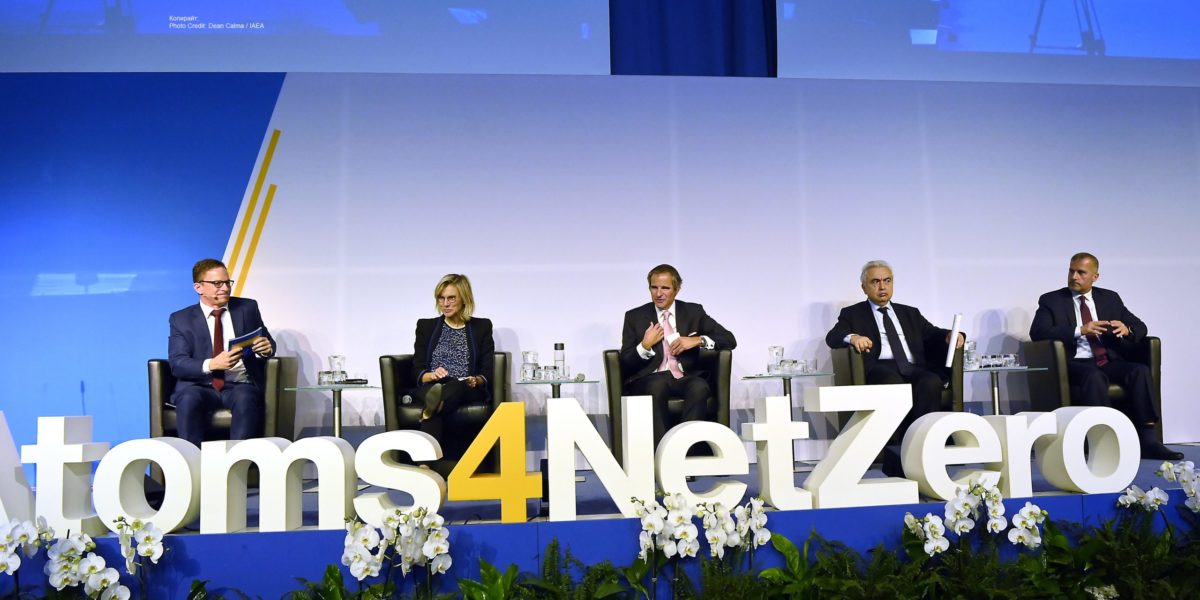
The event was conducted for the second time and preceded the 28th UN Climate Change Conference (COP28). The conference brought together, along with nuclear energy regulators and companies, leading climate experts representing international organisations, financial and research institutions. Hamad Al Kaabi, Permanent Representative of the UAE to the UN and other international organisations in Vienna, and Rafael Mariano Grossi, Director General of the IAEA, opened the event. Fatih Birol, Executive Director of the International Energy Agency, emphasised the growing role of nuclear energy worldwide in his address and underscored the need for nuclear energy to more than double its share by 2050. Throughout the conference, repeated statements were made about the necessity for nuclear players to commit to achieving a threefold increase in nuclear generation to meet the goals of the Paris Climate Agreement. Participants discussed the most important issues on the agenda, including the technological readiness of the nuclear industry, the establishment of sustainable supply chains for both nuclear power plants and small modular reactors, access to financial markets, and the need to continue work on developing regulatory aspects.
Officials from the State Atomic Energy Corporation “Rosatom” presented reports on a wide range of climate-related topics at six sessions.
Ilya Rebrov, Deputy Director General for Economics and Finance, delivered a presentation on “green” financing of Rosatom projects and its role in supporting global energy transition. He highlighted the importance of Rosatom applying “green” financing tools for achieving long-term sustainable development and provided cases of a pilot deal in wind energy and the use of ESG indicators in company’s other projects, such as the Akkuyu Nuclear Power Plant and the handling of industrial waste of I-II classes, among others.
Rosatom’s Chief Sustainability Officer Polina Lion spoke at the session “Access to green finance frameworks, incentives to attract investments.” She pointed out the existing regulatory gap between “green” financing and the nuclear industry, emphasising the need for a thorough examination of ESG requirements applied to low-carbon energy projects. She also proposed the development of a voluntary ESG standard for the nuclear industry to raise the sector’s attractiveness to organisations financing the energy transition.
Rosenergoatom’s Deputy Director General Konstantin Artemiev highlighted the key role of nuclear energy in Russia’s energy transition and the achievement of UN Sustainable Development Goals. One of the important steps toward environmentally friendly and economically efficient industry development, according to Artemiev, is to fully close the nuclear fuel cycle. He emphasised that Rosatom has taken significant steps to achieve this.
“The nuclear community has fully engaged in discussions on the climate agenda and specific practical actions that the nuclear industry can and should take to fight climate change. The IAEA’s systematic efforts in building climate competencies among nuclear community members are noteworthy as well as its consistent work in developing the Atoms4NetZero initiative announced by the Agency at the COP27 climate conference in Sharm El-Sheikh, Egypt, in 2022. It is very important that this discussion now involves not only nuclear experts but also representatives from related fields, including renewable energy and financial institutions,” noted Polina Lion.
Rosatom officials also presented reports on various topics related to SMRs, two-component nuclear energy, back-end management, and public acceptance of nuclear energy. During the discussion on the innovations sustainability of the nuclear fuel cycle, Rosatom presented the most sustainable solution that meets all modern ecological requirements and responsible use of natural resources, which is the Balanced Fuel Cycle. It consists of four components: storage and transportation system, spent nuclear fuel reprocessing with high-level radioactive waste fractionation, fuel fabrication from regenerated materials, and transmutation of minor actinides, also offering the possibility of final disposal of radioactive waste. The importance of public support and engagement with local communities in the implementation of large-scale infrastructure projects was highlighted during the discussion on public acceptance. Rosatom presented a wide range of communication tools designed to debunk myths and stereotypes about nuclear energy and tailored to specific regions with account for cultural, political, and social aspects.
